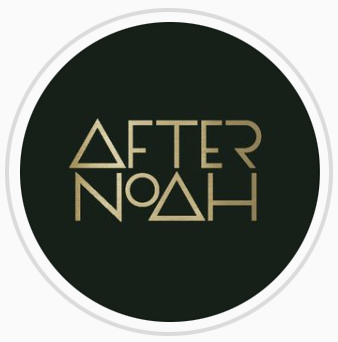

After Noah Ltd

London Borough of Islington, United Kingdom
December 2023
General stores
Wholesale/Retail
United Kingdom
After Noah is a completely unique family and friends-run UK-based furniture, home, restoration and toy company, situated in the heart of London at the Angel, Islington. Established in 1990, it was founded by husband and wife team, Zoë Candlin, a textile designer and Matthew Crawford an antique furniture restorer, who set-out to blend vintage and contemporary living in a welcoming home setting. When visiting us, you’ll be greeted by our friendly and knowledgeable team and find yourself lost amongst the mid-century, vintage furniture (which has been restored entirely in our own on-site workshop) alongside more contemporary, timeless pieces for house and home and complemented by our traditional adjoining toyshop. While there, you can visit our garden and chat to our workshop team, maybe even discussing a project of your own that you’d like us to take a look at. We work with hundreds of suppliers and strive to find those who are like-minded and share a passion for fair trade, sustainability and environmental concerns, that should rightly be of importance to all of us: our team, our customers, our neighbours and our community locally and at large.
Overall B Impact Score
Governance 18.0
Governance evaluates a company's overall mission, engagement around its social/environmental impact, ethics, and transparency. This section also evaluates the ability of a company to protect their mission and formally consider stakeholders in decision making through their corporate structure (e.g. benefit corporation) or corporate governing documents.
What is this? A company with an Impact Business Model is intentionally designed to create a specific positive outcome for one of its stakeholders - such as workers, community, environment, or customers.
Workers 25.0
Workers evaluates a company’s contributions to its employees’ financial security, health & safety, wellness, career development, and engagement & satisfaction. In addition, this section recognizes business models designed to benefit workers, such as companies that are at least 40% owned by non-executive employees and those that have workforce development programs to support individuals with barriers to employment.
Community 19.7
Community evaluates a company’s engagement with and impact on the communities in which it operates, hires from, and sources from. Topics include diversity, equity & inclusion, economic impact, civic engagement, charitable giving, and supply chain management. In addition, this section recognizes business models that are designed to address specific community-oriented problems, such as poverty alleviation through fair trade sourcing or distribution via microenterprises, producer cooperative models, locally focused economic development, and formal charitable giving commitments.
Environment 22.6
Environment evaluates a company’s overall environmental management practices as well as its impact on the air, climate, water, land, and biodiversity. This includes the direct impact of a company’s operations and, when applicable its supply chain and distribution channels. This section also recognizes companies with environmentally innovative production processes and those that sell products or services that have a positive environmental impact. Some examples might include products and services that create renewable energy, reduce consumption or waste, conserve land or wildlife, provide less toxic alternatives to the market, or educate people about environmental problems.
Customers 2.8
Customers evaluates a company’s stewardship of its customers through the quality of its products and services, ethical marketing, data privacy and security, and feedback channels. In addition, this section recognizes products or services that are designed to address a particular social problem for or through its customers, such as health or educational products, arts & media products, serving underserved customers/clients, and services that improve the social impact of other businesses or organizations.